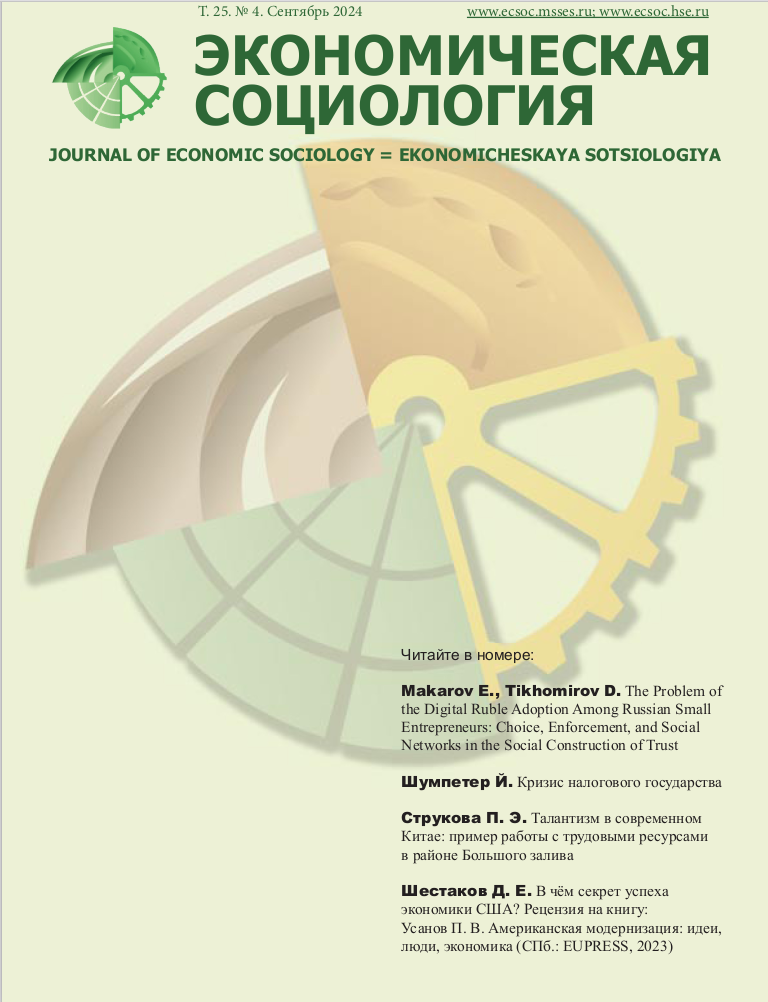The Crisis of the Tax State (excerpt)
Abstract
At the beginning of his article “The Crisis of the Tax State”, published in 1918, Joseph Schumpeter poses an important question: will the economic structure of Western states withstand the burden of war, or does it need to be transformed so that something new can emerge? According to the author, this question is typically discussed from the perspective of three future alternatives: the collapse of the capitalist system, the expansion of economic freedoms, and the emergence of an administrative economy. However, Schumpeter believes that the First World War exposed a more fundamental crisis in modern societies rather than being its cause, at the heart of which lies the failure of the tax state. For a true understanding of this crisis, a sociological perspective is necessary—namely, fiscal sociology—which considers financial history as an integral part of a people's history. Finances serve as one of the starting points for studying the social mechanism. In this context, the author suggests seeking answers to the following questions: What does “the failure of the tax state” mean? What is its essence? How did it arise? What social processes underlie the superficial facts expressed by budget figures?













